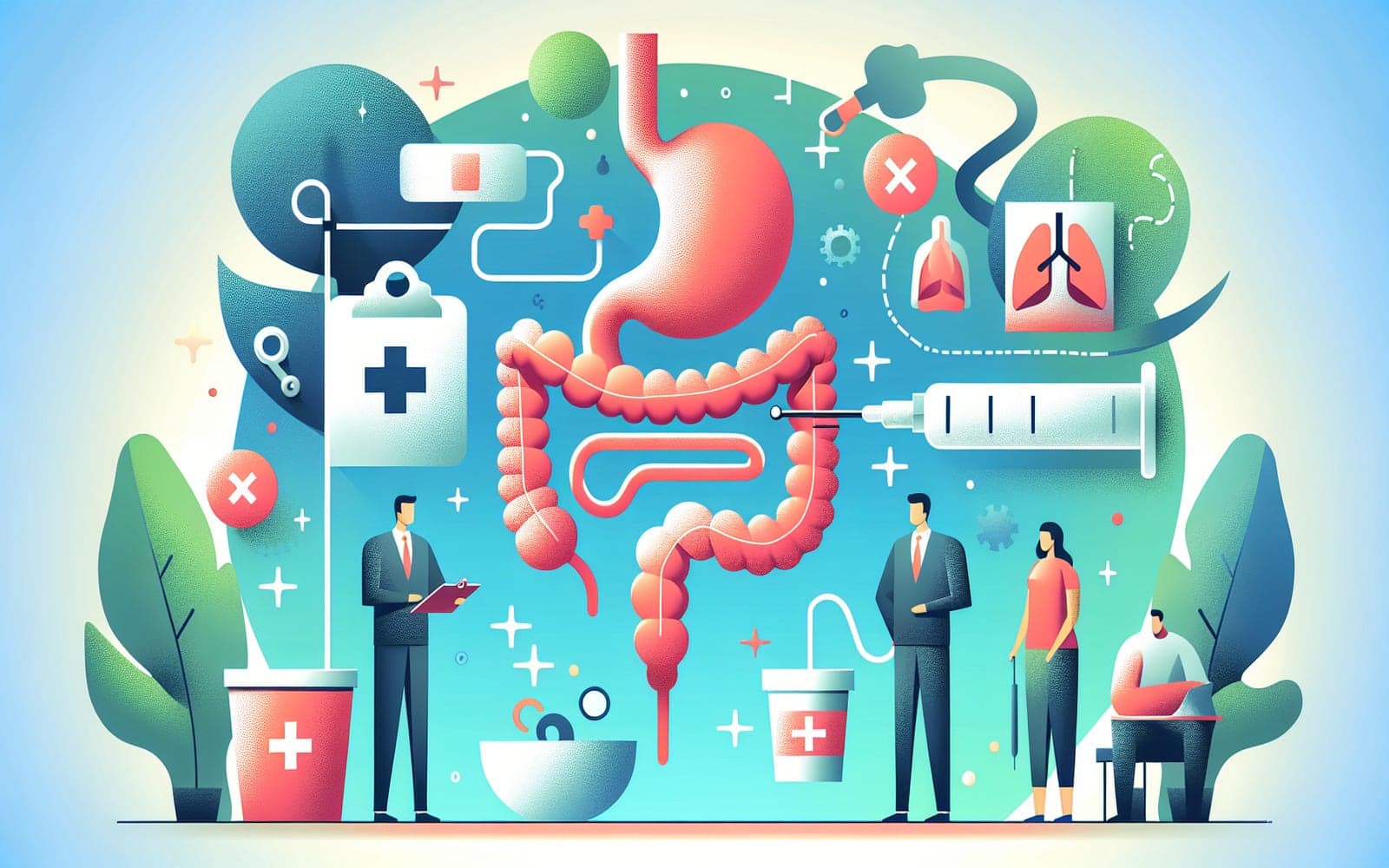Treating Diverticulitis: From Antibiotics to Surgery - What You Need to Know
Published: Jun 23, 2024
Diverticulitis treatment has evolved in recent years. From antibiotics to lifestyle changes, and sometimes surgery, there are several approaches to managing this condition.
Contents
The Antibiotic Debate
For years, antibiotics were the go-to treatment for diverticulitis. However, recent studies suggest they may not always be necessary for mild cases. Some doctors now use a 'watchful waiting' approach for uncomplicated diverticulitis, treating with rest and a liquid diet. However, antibiotics are still crucial for severe cases or those with complications. Your doctor will determine the best approach based on your specific situation.
Diet as Medicine
Diet plays a crucial role in both treating and preventing diverticulitis. During an acute attack, your doctor may recommend a liquid or low-fiber diet to rest your bowel. As you recover, you'll gradually return to a normal diet. Long-term, a high-fiber diet rich in fruits, vegetables, and whole grains may help prevent future attacks. Contrary to old beliefs, you don't need to avoid nuts, seeds, or popcorn.

When Surgery is Needed
In some cases, diverticulitis may require surgery. This is typically recommended for complications like abscesses, fistulas, or bowel obstructions. It may also be considered for frequent recurrences. The most common procedure is a colon resection, where the affected part of the colon is removed. With advances in technology, many of these surgeries can now be done laparoscopically, resulting in smaller incisions and faster recovery times.
Lifestyle Changes
Lifestyle modifications can play a big role in managing diverticulitis. Regular exercise has been shown to reduce the risk of attacks. Maintaining a healthy weight is also important, as obesity is a risk factor for diverticulitis. Quitting smoking and limiting red meat consumption may also help. These changes not only reduce diverticulitis risk but promote overall health as well.
Frequently Asked Questions
Some studies suggest they may be beneficial, but more research is needed.
Typically 1-2 weeks with treatment, but can vary.
While individual attacks can be treated, the underlying diverticulosis remains.
No, many cases can be managed with conservative treatment.
While not proven, stress reduction may help overall gut health.
A Personalized Approach
Treatment for diverticulitis should be tailored to each individual's needs and severity of the condition.
References
- Stollman N, et al. American Gastroenterological Association Institute Guideline on the Management of Acute Diverticulitis. Gastroenterology 2015; 149:1944.
- Rezapour M, et al. Diverticular Disease: An Update on Pathogenesis and Management. Gut Liver 2018; 12:125.
- Strate LL, et al. Nut, corn, and popcorn consumption and the incidence of diverticular disease. JAMA 2008; 300:907.
- Böhm SK. Risk Factors for Diverticulosis, Diverticulitis, Diverticular Perforation, and Bleeding: A Plea for More Subtle History Taking. Viszeralmedizin 2015; 31:84.
This article has been reviewed for accuracy by one of the licensed medical doctors working for Doctronic. Always discuss health information with your healthcare provider.
AI Doctor Visit Required
Appointments available 24/7
15-min consultation. No hidden costs.
AI Doctor Visit Required
For safety reasons we have been forced to end this consultation.
If you believe this is a medical emergency please call 911 or your local emergency services immediately.
If you are experiencing emotional distress, please call the the Suicide & Crisis Lifeline at 988 or your local crisis services immediately.
Contact us
You can also email us at help@doctronic.ai
We aim to reply within 5-7 days
How likely are you to recommend Doctronic to friends or family?


